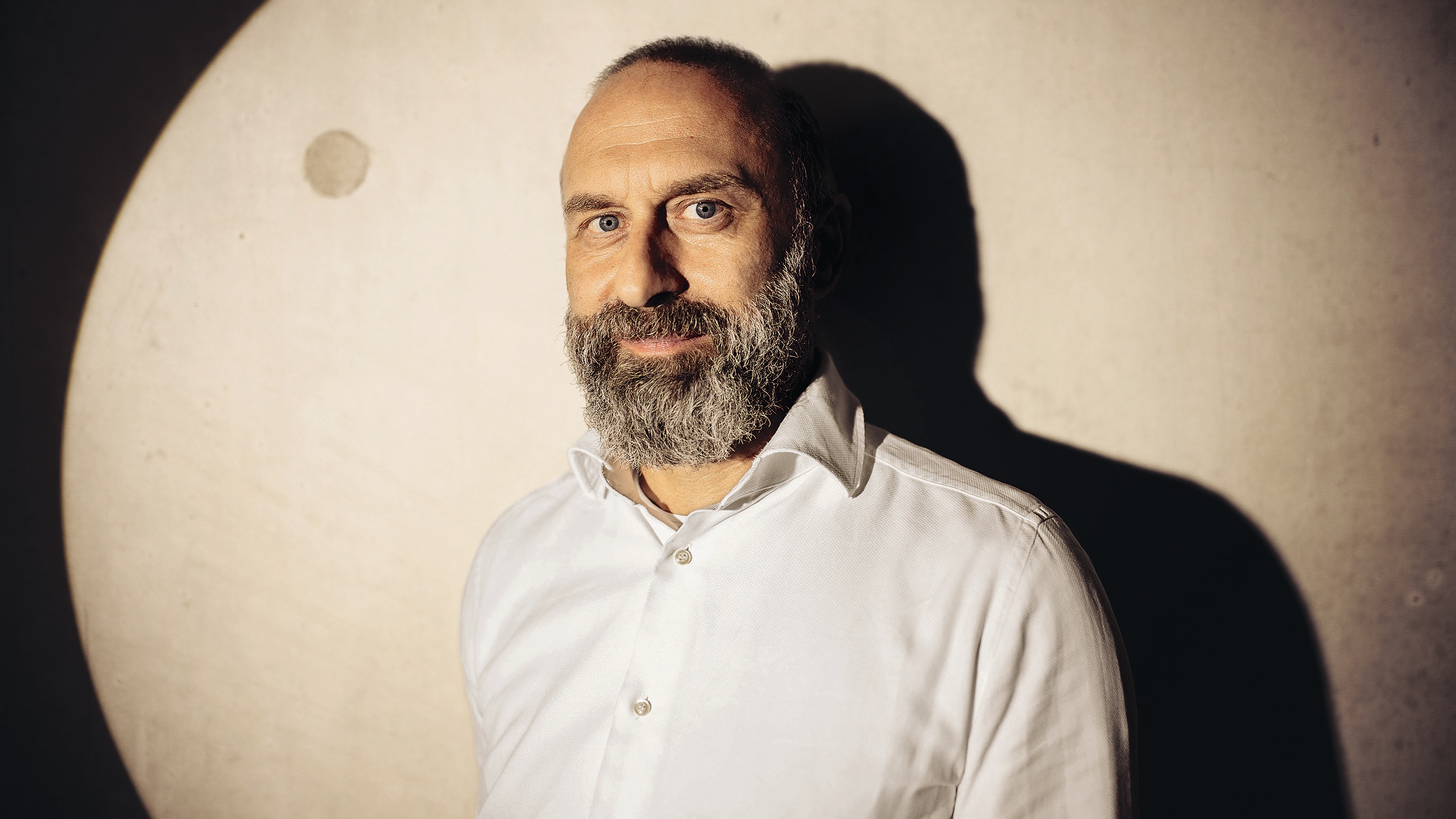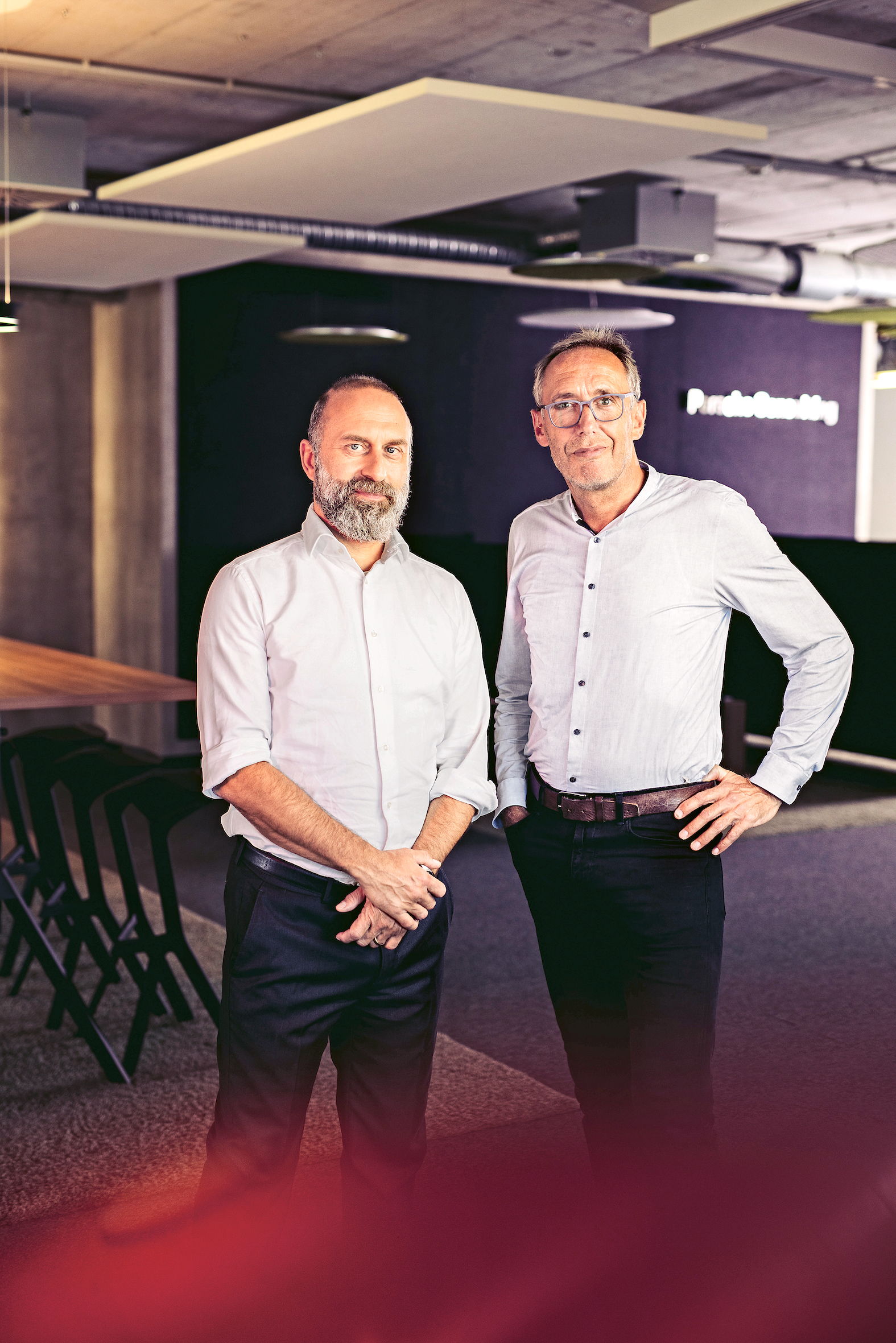How far do you think AI development will go and what role will it play in our society? Are there specific limits or end goals to AI development?
Dirk Lappe: Artificial intelligence (AI) has made impressive progress, however, it does have limits compared to human inventiveness. AI is very strong when it comes to detecting patterns, analyzing data, and executing specific, learned tasks. But the types of creativity and innovation that humans exhibit are difficult for AI. AI can process data based on previous information, but—unlike humans—it can’t come up with completely new ideas or concepts. The human ability to learn from experience and to apply intuition and emotional intelligence remains unique. The intelligence associated with conscious perception, i.e. the awareness of one’s own existence and the ability to process experiences subjectively, is a major challenge in the context of AI. Current AI systems can process data based on algorithms and machine learning, and can even make decisions. But they do not have any awareness in the sense that humans do.
Federico Magno: Our awareness also comprises emotions— something that I, as an Italian, know all about! Emotions include things like self-assurance, subjective experiences, and our understanding of ourselves in the context of the world. These aspects are deeply rooted in human psychology and are embedded in our brains. AI systems have no personal experiences; in other words, they don’t know what they’re doing or, to be more precise, what they’ve done. They act without feeling. This self-referential intelligence of humans, as it is known, is another fascinating characteristic. It refers to how humans think about themselves, how they develop self-awareness, and how they understand and reflect on their own mental processes.

What’s special about that?
Magno: It has been said that self-understanding is the first step towards improvement. And, if you take that literally, it describes quite neatly what differentiates us from artificial intelligence—at least for now. Our self-knowledge means that we are able to learn from our mistakes. This type of intelligence is uniquely complex as it includes not only cognitive abilities, but also emotional and social aspects. Machines are scarcely able to emulate this kind of intelligence. AI systems can be programmed to analyze their performance and to adapt to certain tasks. And yet that is nothing other than cold self-optimization, an anemic, emotionless process. The systems have no awareness of themselves the way humans do.
And what does that mean for the vehicles of the future?
Lappe: With regard to future developments, such as the vehicle of the future, it is easy to speculate that AI could achieve or even surpass human-like capabilities in certain areas. Nevertheless, aspects such as creative thinking, empathy, and general problem- solving skills are likely to be limits that AI will find difficult to overcome. The future of automated driving looks promising, all the same. Impressive developments are being made outside of AI, such as ones to sensor systems. These advances could make traffic safer and more efficient. Automated vehicles could also improve mobility for people who can’t drive themselves, or don’t want to. However, along with technical complexity, there are also challenges, such as legal issues, data protection and social acceptance.

What role is played by the self-referential intelligence that Mr. Magno just described?
Lappe: Self-referential intelligence of the kind that humans are endowed with is not necessarily crucial to autonomous driving. Autonomous vehicles use AI systems that process and react to information about their surroundings as a basis, but need no self-awareness or understanding of their own existence to do so. For autonomous driving, other aspects of AI are more important, such as the ability to register its surroundings—other vehicles, pedestrians, traffic signs, and the road conditions—with accuracy. Its ability to use sensor data and programmed algorithms to make safe and efficient decisions is also relevant, as is, ultimately, its capacity to adapt to different traffic conditions and unpredictable events.
These capabilities allow autonomous vehicles to navigate and operate safely without the need for self-referential intelligence. If, during autonomous driving, not all perception data is available, this brings several challenges, to which there are also several possible solutions. Autonomous vehicles are often equipped with redundant systems such as multiple sensors and cameras.
If one sensor fails, others can compensate for the missing data. If there is insufficient data, autonomous systems tend to drive more carefully by slowing down, for example, or even stopping until more information is available. Experience can teach vehicles how to handle incomplete data better. Connectivity with other vehicles or with the road infrastructure can provide additional information. Safety is always the top priority.

And what about completely driverless mobility?
Lappe: Let’s first have a quick look at what that means. We know that there are five levels of automated driving. Each level introduces more automation and less need for human intervention. Level 1—driver assistance: There are systems in place such as cruise control and lane keeping assist, but the driver needs to constantly intervene and maintain control. Level 2—partial automation: The vehicle can perform certain tasks such as steering, accelerating, and braking, but the driver still has to monitor the surroundings and be ready to step in. Level 3—conditional automation: Under certain conditions, the vehicle can drive itself, but the driver needs to be ready to take control if needed. Level 4—high degree of automation: The vehicle can drive autonomously in most situations without the driver needing to take action. There does remain, however, an option for manual driving.
Magno: And then we get to the cream of the crop, level 5—fully automated driving. In this case, the vehicle is responsible for all driving tasks under all conditions. There is no need for a driver or even a steering wheel. This is the level that will prove to be very difficult to achieve in the coming years due to the amount of data and processing power required, as well as the very expensive sensor technology needed. Autonomous vehicles are highly dependent on the available and learned dataset, and on that dataset being up to date. Most of the data needs to be continuously collected by the vehicle itself. To analyze the data, however, an autonomous vehicle drives millions of kilometers virtually in simulations, where it learns to make the right decisions.
What exactly distinguishes the system from a human?
Magno: In principle, not much, at least to begin with. Humans also use their senses to register their surroundings, traffic, road conditions, signs, and the dimensions of their vehicle. They generally have only limited data at hand, such as knowing where a certain road is or where to turn. And this data is easy to expand with an old-fashioned roadmap, for example. Humans, however, don’t need to drive millions of kilometers to pass the driving test. The requirements to obtain a driver’s license usually include a certain number of driving lessons and theoretical instruction, followed by a practical and a theoretical test. After that, humans can use their self-referential intelligence to make up for the rest: They don’t need to have been in every possible situation before in order to know which action to take. It doesn’t matter if it’s a green ball or a red one that rolls onto the road; humans still know to stop because a child might well be running after it. An autonomous vehicle first needs to be taught both situations. And that’s just one basic example. From today’s perspective, it remains uncertain whether fully autonomous vehicles will ever be able to find all the necessary answers for level 5 in simulations and tests.
Mr. Lappe, how does Porsche Engineering intend to influence progress in mobility in the future?
Lappe: With courage! As in recent years, we will continue to show courage in development in the future—because that is consistently the fuel of innovation, progress, and positive change. Developments, whether they be of a technological, scientific, or social nature, often require courage. Courage in development is more than just a personal quality. There are many reasons why courage in development is of crucial importance. It’s the engine of innovation. It empowers developers to explore new ideas and create innovative solutions that cross the boundaries of what is already known. Without courage, a lot of groundbreaking discoveries and inventions would never become reality.

Mr. Magno, what is your view of the future of mobility?
Magno: The development of mobility has always been characterized by many uncertainties and risks that should not be underestimated. However, the risk of failure is, today, a financial one and fortunately no longer a life threatening one, as it was, for example, in the first few years of aviation. This is another area where AI helps us to better find rare errors that potentially would have ended disastrously in the past. Businesses that exhibit courage do not consider errors insurmountable obstacles or signs of failure. Instead, they see errors as valuable opportunities to learn and improve, and to develop a product that will serve everyone.
It sounds like you both consider courage to be the central enabler when it comes to developments and innovations, including ones in mobility…
Lappe: That’s right. Developments can run into many obstacles and challenges. Courage means that developers can overcome these obstacles, find creative solutions, and face up to great difficulties. In a constantly changing world, courage is required to adapt to new technologies, trends, and customer needs. Courageous developers are open to change and are ready to rethink existing concepts and business models.
Magno: I’d go even further and say that courageous developers and businesses have the power to inspire others. They show that it’s possible to take risks and to put visionary ideas into practice. Their actions encourage others to be courageous and to blaze innovative trails. Courageous development can bring about far-reaching social change by offering solutions for pressing social problems. Examples range from breakthroughs in the medical field to sustainable environmental initiatives.

Lappe: Courage is, not least, a key to promoting personal and professional growth. At the same, it drives progress in development as well as overall social progress.
Magno: Having a competitive edge like that can be crucial in an increasingly globalized world. Courageous businesses are often able to distinguish themselves from their competition by opening up new markets and offering innovative products and services. Their courage promotes a positive working environment where people are ready to share their creative ideas and pursue pioneering projects.
Lappe: To sum up, courage in development is a driving factor for change and progress towards the mobility of the future. It helps us to overcome challenges, and shape the world with innovative ideas and solutions. Courageous development is a driver of positive change and should therefore be promoted and valued at every phase of a development project. It’s the key to a better future.
And what about the future of AI?
Lappe: The future of AI in automobile development is promising and diverse, and not just when it comes to autonomous driving. AI has the potential to contribute to improving vehicle safety systems by spotting dangerous situations faster and initiating preventive measures. Vehicles can be individualized based on requirements, resulting in a whole new driving experience. For development and production, AI systems can optimize processes, save resources, and increase product quality. AI is able to forecast maintenance needs, which is already reducing downtime and increasing the service life of vehicle components. We will also begin to experience more advanced connectivity functions in the car, including a connection to big data and IoT applications. AI enables us to make vehicles more environmentally friendly by optimizing their fuel consumption and supporting the development of electric vehicles. Overall, AI will revolutionize automobile development by making vehicles safer, more efficient, and more user friendly.
Magno: Over the long term, additional big leaps in innovation are already in sight. Neuromorphic systems that mimic the structures and functions of the human brain could play a key role in the ongoing development of AI technologies in the future. These chip-based systems could be more efficient and faster than conventional processors, especially when processing sensory data. They could make decisions in real time—thereby rivaling even the decisiveness of humans. Systems of this nature are designed to better process complex and unstructured data of the kind found in the real world. That will shape the future of mobility, and not just in the form of fully autonomous, level 5 vehicles, but also in the way mobility will be organized and the new business models that will emerge as a result. We know that AI has the power to revolutionize business processes— at least if it’s used right. And that, too, will take a certain amount of courage.
Lappe: Physical computing models that mimic natural processes can also help to develop more efficient and more robust AI systems. These kinds of models could be able to handle uncertainties and incomplete information better, something that is crucial to autonomous driving. Such technologies are promising, but are still in an early stage of development. They could lead to significant breakthroughs in AI, particularly with regard to flexibility, learning capacity, and adaptability.
Magno: The development of an AI with conscious perception or even self-referential intelligence would be an enormous leap ahead. It would, however, also present a lot of legal, ethical, philosophical and technnical questions that we would have to address.
Lappe: We will see major advances in autonomous vehicles up to level 4 and will be able to produce high-quality and safe products. However, we will continue to see relatively few level 5 vehicles on the roads for many decades to come due to a dearth of complete data. Even in the foreseeable future, most vehicles will continue to have a steering wheel that intelligent humans will be able to use to override artificial intelligence and assume control of the vehicle.
Info
Text first published in the Porsche Engineering Magazine, issue 1/2024.
Text: Porsche Engineering
Images: Nói Crew
Copyright: All images, videos and audio files published in this article are subject to copyright. Reproduction in whole or in part is not permitted without the written consent of Dr. Ing. h.c. F. Porsche AG. Please contact newsroom@porsche.com for further information.
.jpg/jcr:content/S44-NOI_230919_PorscheMagazin_0047_278A5652-Final%20(1).jpg)

